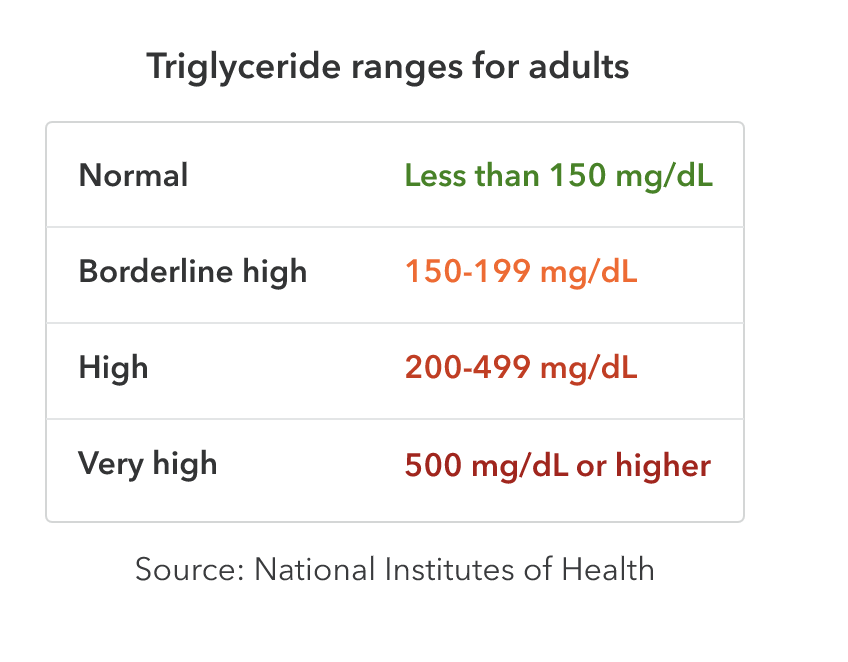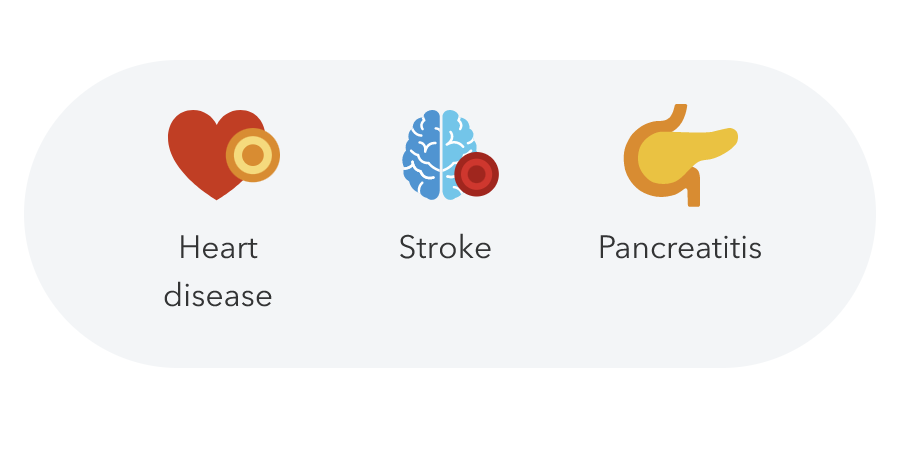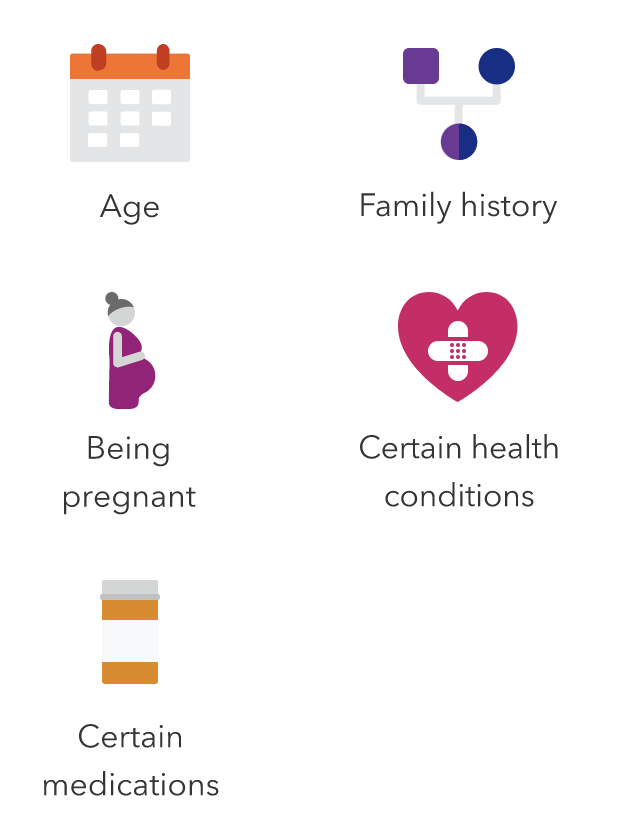Are Triglycerides Genetic?Explore Triglycerides and what your DNA can tell you
What are triglycerides?
Triglycerides are a form of fat, or lipid. They are produced by the body when you consume more calories than are needed. The energy from these excess calories is stored inside cells in the form of triglycerides until it is needed. Triglycerides are measured with a blood test. Normal triglyceride levels are often defined as being lower than 150 mg/dL (said “milligrams per deciliter”).
Find Out if Your Genetics Might Increase Your Likelihood for Developing High Triglycerides.

How can high triglycerides impact your health?
Having higher than normal triglycerides is associated with an increased risk for heart disease, heart attack, and stroke. It may also be a sign of other conditions that increase the risk for heart disease, including type 2 diabetes and low HDL (or “good”) cholesterol levels. Very high levels of triglycerides can cause a sudden onset of pancreatitis, or inflammation of the pancreas.
People with high triglycerides may not have any symptoms. They may first learn that they have high triglycerides when they get a blood test for lipid levels, including cholesterol as well as triglycerides. Depending on your triglyceride levels and whether you have other risk factors for heart disease and stroke, your doctor may recommend lifestyle changes and/or medications to help lower your triglyceride levels.

Other factors that may cause an increased likelihood of high triglycerides
Besides genetics, weight, and lifestyle, other factors that can increase the likelihood of developing high triglycerides include:
- Age (triglyceride levels tend to increase with age)
- Family history
- Being pregnant
- Certain health conditions, including type 2 diabetes, low HDL (“good”) cholesterol, and hypothyroidism
- Certain medications

Find out if your genetics might increase your likelihood of developing triglycerides
Curious whether you have an increased likelihood of developing high triglycerides based on your genetics? 23andMe takes into account more than 4,000 genetic markers to estimate the likelihood of developing high triglycerides. Find out more with the Triglycerides report (Powered by 23andMe Research), part of the 23andMe+ Premium membership. 23andMe+ Premium includes everything in our Health + Ancestry Service plus new premium reports and features throughout the year.

23andMe+ Premium
Please note:
- This report does not diagnose high triglycerides and should not be used to make medical decisions.
- The report was developed by 23andMe scientists using data and insights gathered from thousands of customers who chose to participate in our research. Reports based on 23andMe research provide an estimate of your likelihood of developing a condition based on your genetics and other factors. This report does not account for lifestyle or family history.
- The report does not account for every possible genetic variant that could affect your likelihood of developing high triglycerides.
References
Dron JS et al. (2020). “Genetics of Hypertriglyceridemia”. Front Endocrinol. 11:455.
Simha V. (2020). “Management of hypertriglyceridemia.” BMJ 371:m3109.